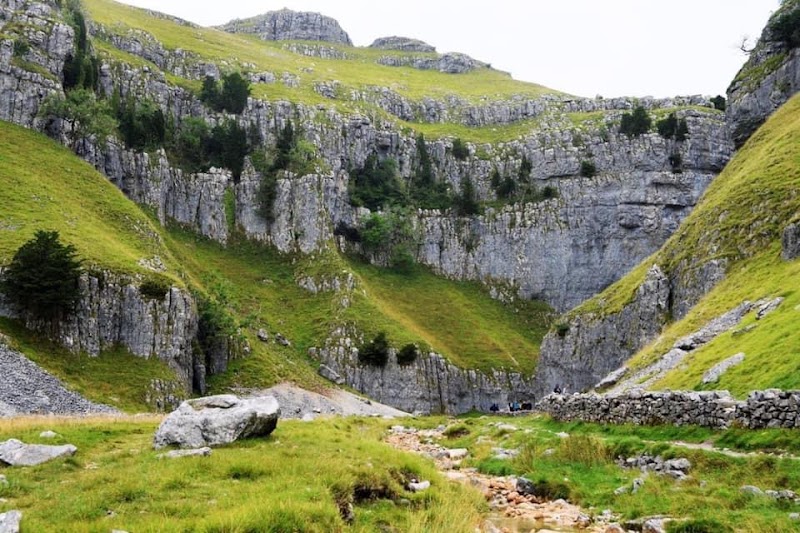
Savor the Flavors: Your Guide to Morecambe Food and Drink Festival
Experience the vibrant Morecambe Food and Drink Festival—a celebration of Lancashire’s coastal flavors and culinary craft. From fresh seafood to craft ales, this lively weekend event invites you to taste, learn, and explore Morecambe’s unique food culture.
Plan Your Sampling Budget
While entry is free, food and drink are sold separately. Setting a budget helps avoid overspending on tempting but costly treats.
Wear Comfortable Footwear
The festival involves considerable walking on mixed surfaces, from paved promenades to indoor market halls. Supportive shoes keep you on your feet for hours.
Stay Hydrated
As you sample rich and salty foods, drink plenty of water—bring a reusable bottle and refill as needed throughout the day.
Book Masterclasses Early
Food and drink workshops have limited spaces and fill quickly. Secure your spot in advance to benefit from expert insights and tasting experiences.
Savor the Flavors: Your Guide to Morecambe Food and Drink Festival
Morecambe Food and Drink Festival brings the vibrant taste of Lancashire’s coastline to life every year, transforming this seaside town into a hub for culinary adventure. From locally sourced oysters to artisan cheeses, the festival invites visitors to engage directly with food producers and chefs who celebrate the richness of Morecambe Bay. The festival spans several streets and venues across Morecambe, offering a stepping-stone approach to tasting—from casual stalls to dedicated tasting sessions.
The atmosphere is bustling but manageable, blending the hum of eager conversation with the occasional sea breeze pushing off Morecambe Bay. Food stalls line the promenade and Market Hall, where lively demonstrations and workshops run alongside music and family-friendly activities. Expect a range of offerings: fresh seafood freshly plucked from the bay, craft ales brewed in local microbreweries, and sweet treats from nearby Lancashire bakers.
Timing your visit is straightforward—the festival is usually held over a weekend in late May or early June, capturing early summer’s warmth without the summer crowds. The weather in Morecambe is brisk but rarely extreme, so layering is practical. Prepare to spend several hours walking the compact area, tasting, talking, and learning. Keep a reusable water bottle handy, as hydration pairs surprisingly well with savory sampling.
Entrance is free, with food and drink available for purchase as samples or full portions. If you’re planning strategically, attend the tasting masterclasses that require early booking. These sessions provide invaluable insight into local ingredients and wine pairings, elevating the foodie experience to a deeper engagement with Lancashire’s culinary craft.
Morecambe itself offers more than just food. The nearby sea dares you to explore scenic walkways and old piers, some offering quieter views of the bay’s expansive waters and distant Lake District fells. The salt air energizes, and the ever-changing light plays over the bay, setting the mood for a sensory day out.
Ultimately, the Morecambe Food and Drink Festival is a practical, flavorful excursion for anyone looking to combine a taste of local culture with an active exploration of a coastal town. Pack comfortable shoes, plan your tasting budget, and come ready to meet producers who are fiercely proud of their craft. Adventure here is less about rugged paths and more about discovering flavors that are as lively and sincere as the town itself.
Nearby Trips
All Adventures
Boat Charters
Water Activities
Adventures near Morecambe, Lancashire
Discover the unique and memorable adventures that make Morecambe, Lancashire special.
Frequently Asked Questions
Is there an admission fee for the Morecambe Food and Drink Festival?
Entrance to the festival is free. Food and beverages are available for purchase as individual items. Some workshops or masterclasses require separate tickets.
Are the food offerings suitable for dietary restrictions?
Yes. Vendors typically label food allergens and accommodate common dietary needs including vegetarian, vegan, and gluten-free options. It's advisable to inquire about specific ingredients at each stall.
Can children attend the festival?
Absolutely. The festival is family-friendly, offering activities and entertainment suitable for children alongside tastings for adults.
What public transport options are available to reach Morecambe?
Morecambe is accessible by train from Lancaster (under 20 minutes) and by several local bus routes. The town’s compact layout makes walking the best way to navigate the festival area.
Are pets allowed at the festival?
Pets are generally not permitted in food preparation or eating areas. Service animals are usually allowed, but it's best to confirm in advance with specific venues.
Where are the best spots for scenic views nearby?
The stone-built Morecambe Promenade offers sweeping views across Morecambe Bay, especially near the iconic Midland Hotel and further along towards the statue of Eric Morecambe.
Recommended Gear
Comfortable walking shoes
Supportive footwear is crucial for covering the festival area without fatigue.
Reusable water bottle
Staying hydrated amid food tastings is important, especially on sunny days.
Light waterproof jacket
Spring showers can be sudden; a lightweight jacket keeps you dry without overheating.
Foldable tote bag
Convenient for carrying purchases and festival leaflets without extra waste.
Local Insights
Hidden Gems
- "The art deco Midland Hotel rooftop terrace offers a quieter viewpoint over the bay."
- "Stone Jetty pier provides less crowded, panoramic views of the bay and wildlife."
Wildlife
- "Look for foraging oystercatchers along the shoreline and migratory wading birds in the bay."
- "Seals are occasionally spotted resting on sandbanks during low tide."
History
"Morecambe’s development as a seaside resort in the Victorian era shaped its current festival culture, celebrating both maritime heritage and local produce."
